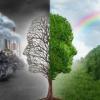News
Displaying Results 76 - 100 of 108
August is wildfire season in many parts of the Northern Hemisphere. Many areas in the UNECE region, including North America, Siberia, and Mediterranean countries have experienced unusually hot and dry weather this year, and with that some of the biggest wildfires on record. Areas burned in Turkey…
By Ms. Olga Algayerova, UN Under-Secretary-General and Executive Secretary of UNECE, and Ms. Elisabete Quintas da Silva, Head of Department, Sustainable and Efficient Use of Resources Operational Programme, Government of Portugal, and Chair of the UNECE Committee on Environmental Policy.
This…
Improving energy efficiency is a cost-effective means to support economic development while contributing to climate action. On a national scale, energy efficiency helps strengthen energy security, reduce energy expenditure, slow down energy demand growth, reduce investment needs for new generation…
Setting the major directions to strengthen effective public participation and access to information and justice by 2025 was the focus of the twenty-fifth meeting of the Working Group of the Parties to the Convention on Access to Information, Public Participation in Decision-Making and Access to…
The importance of statistical information to help us cope with disasters has never been clearer than over the past year. As the Covid-19 pandemic has gripped the world, numbers have become our bread and butter. Yet the pandemic has also highlighted the challenges and imperfections in many systems; …
Mobility is a primary enabler of our economic and social life. However, despite its many benefits, the costs of mobility to societies around the world remain unacceptably high. These include greenhouse gas emissions (transport accounts for some 24% of global CO2 emissions, three quarters of which…
The extraction of raw materials worldwide has more than doubled since 1990 and could double again by 2060 in the absence of corrective policies. According to the UN International Resources Panel, resource extraction and processing account for 90% of global biodiversity loss and water stress impacts…
UNECE continues to help its member States to respond to COVID-19 crisis. As part of this work, Guidelines and Best Practices for Micro-, Small and Medium Enterprises in Delivering Energy-Efficient Products and in Providing Renewable Energy Equipment developed earlier are being customized for North…
Buildings consume over 70 per cent of the electrical power generated and 40 per cent of primary energy and are responsible for 40 per cent of carbon dioxide emissions from related fuel combustion. At the same time, in 2018, out of 4.5 trillion USD spent on building construction and renovation, the…
To reduce transmission of the novel coronavirus, Governments in the UNECE region introduced social distancing and other measures, which have often included restrictions on the freedoms of assembly and of movement. Consequently, there has been an impact on procedural rights of public participation…
Systemic deficiencies with regard to access to information, decision-making or compliance with environmental law can seriously threaten successful implementation of circular and green economy and sustainable development. Taking a case to court to advance a widely shared public interest remains an…
Olga Algayerova
Women’s Day Blog
On the occasion of the International Women’s Day, I would like to pay tribute to all women leaders, and all women and men, girls and boys, who are empowering women and girls to build a better future for all!
The theme of this year’s International Women’s Day is…
Achieving equality between women and men is a core goal of governments and the international community. The frameworks that guide us towards this goal—the Sustainable Development Agenda and The Beijing Platform for Action, among others—emphasize that for equality to be achieved, women and men must …
A circular economy is a paradigm which can contribute to reducing the economic, environmental and social costs of resource use, while at the same time strengthening economic competitiveness, reducing poverty, and providing better quality of life, in line with the United Nations 2030 Agenda for…
The COVID-19 pandemic has exposed dysfunctions in many systems, including those that affect the lives of older people and their communities. COVID-19 has disproportionately affected older persons – nearly 9 out of 10 COVID-19 deaths in the UNECE region have been among those aged 65 and older.…
After months of the COVID-19 crisis challenging healthcare systems and undermining economies, governments worldwide are looking for ways to jump-start the economic recovery. Without factoring in environmental concerns, recovery packages risk undermining the foundations for sustainable development, …
Effective public access to environmental information is critical for promoting a green and circular economy, increased biosafety and community resilience. The need to further such access using modern digital technologies has been increasingly voiced across countries in the light of the coronavirus…
An estimated one billion people worldwide live with disabilities. In the European Union, one person in seven among the working age population reports a difficulty with a basic activity – such as walking, seeing or hearing, lifting or carrying, sitting or standing, and remembering and concentrating…
The current patterns of raw material consumption are unstainable and are becoming an existential threat to the planet.
The United Nations Framework Classification for Resources (UNFC) offers a solution to support a total transformation towards a sustainable resource management future. To…
We stand at a critical moment. More than ever, the great challenges we face – like COVID-19, the climate crisis, unsustainable resource use, and inequalities – cannot be faced by one country alone. The 75th anniversary of the United Nations is the time to reflect on how we can best work together to…
The European Green Deal is a new growth strategy aiming to transform the European Union into a modern, resource-efficient and competitive economy. The European Green Deal has a number of overarching objectives, including for the European Union to reach net-zero GHG emissions by 2050; promotion of…
Data can be a matter of life and death. We have seen in recent years how statistical information about the structure of the communities affected by earthquakes or typhoons—how many people, in which age groups, and in which locations—is essential for making quick and informed decisions to mobilize…
The COVID-19 health crisis has caused wide-ranging socio-economic disruption worldwide. This has exposed and aggravated existing social imbalances. The pandemic has called for unprecedented measures to protect those so close to our heart: our parents, grandparents, the elderly and vulnerable.…
With the consequences of COVID-19 still unfolding, one area of major disruption has been to global food systems, resulting in significant increases in food loss and waste.
Today, the first ever International Day of Awareness of Food Loss and Waste, is a wake-up call. We must access and make…
While COVID-19-related disruptions may have impacted people’s mobility and slowed cross-border movements of people and goods this year, pollution knows no travel restrictions. Air pollutants, travelling through our atmosphere, can harm people and the environment even thousands of kilometres…






















